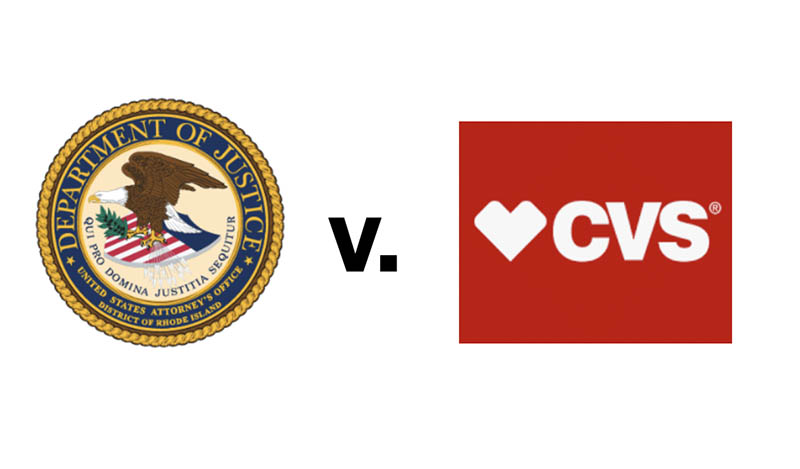The U.S. Department of Justice (DOJ) has filed a civil complaint against CVS Pharmacy Inc. and its subsidiaries, accusing the nation’s largest pharmacy chain of violating federal laws by filling unlawful prescriptions and seeking reimbursement for them from federal healthcare programs. The allegations, outlined in a complaint unsealed today in Rhode Island, claim violations of the Controlled Substances Act (CSA) and the False Claims Act (FCA).
The complaint alleges that since October 2013, CVS knowingly filled prescriptions for controlled substances that were illegitimate, medically unnecessary, or outside the usual course of professional practice. These included excessive quantities of opioids, early refills, and “trinity” prescriptions—an especially dangerous combination of an opioid, a benzodiazepine, and a muscle relaxant. CVS is also accused of filling prescriptions written by prescribers engaged in “pill mill practices,” issuing large volumes of controlled substances without medical justification.
According to the DOJ, CVS ignored warnings from its own pharmacists and internal data that flagged unlawful prescription practices. Corporate policies prioritizing performance metrics and profit allegedly contributed to the violations, with low staffing levels and limited communication channels between pharmacists cited as compounding factors.
The government asserts that CVS’s actions contributed to the opioid epidemic, including cases where patients died from overdoses shortly after filling unlawful prescriptions at CVS pharmacies. “Our complaint alleges that CVS repeatedly filled controlled substance prescriptions that were unlawful and pressured its pharmacists to fill such prescriptions without taking the time needed to confirm their validity,” stated Brian M. Boynton, Principal Deputy Assistant Attorney General for the DOJ’s Civil Division.
U.S. Attorney Zachary A. Cunha for the District of Rhode Island emphasized CVS’s role as a gatekeeper for prescription opioids, alleging the company “facilitated the illegal proliferation” of addictive drugs by overburdening staff and prioritizing profits over safety.
The DOJ further alleges that CVS violated the FCA by seeking reimbursement for these prescriptions through federal healthcare programs, compounding the harm caused. If found liable, CVS could face civil penalties for each unlawful prescription, treble damages, and injunctive relief requiring changes to its compliance practices.
The lawsuit is bolstered by whistleblower Hillary Estright, a former CVS employee, who filed the initial action under the FCA’s qui tam provisions. These provisions allow private citizens to sue on behalf of the government and share in any financial recovery. The DOJ has intervened in the case, underscoring its commitment to combating healthcare fraud and the opioid crisis.
Multiple federal agencies contributed to the investigation, including the Drug Enforcement Administration (DEA), Department of Health and Human Services Office of Inspector General (HHS-OIG), and the Defense Criminal Investigative Service (DCIS). Assistant U.S. Attorneys and DOJ trial attorneys from several jurisdictions are leading the litigation.
The allegations against CVS remain claims at this stage, with no determination of liability made. The case, titled United States ex rel. Estright v. Health Corporation, et al., is filed in the District of Rhode Island under case number 1:22-cv-222.

